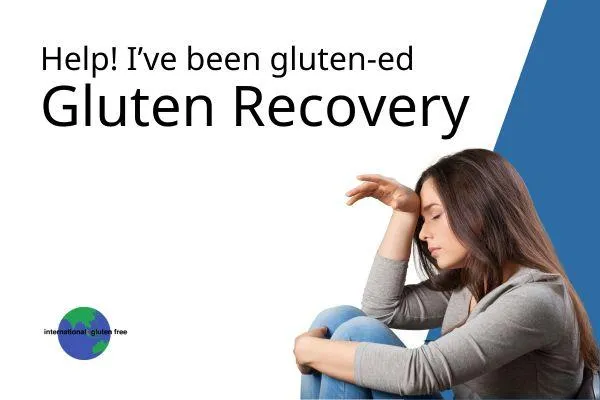International Gluten Free Education & Awareness
All Posts

Gluten Recovery
You do everything you can to stick to your gluten-free diet, but no matter how careful you are it is hard to avoid the occasional slip up, mistakes can and do happen. Some people with celiac disease or gluten intolerance can experience symptoms with just a few crumbs or one bite of a gluten containing food.
There is no magic pill to stop the autoimmune reaction and the damage to the body. Remember, damage to the bowel lining can occur even when there are no symptoms. What can you do to help ease the unpleasant symptoms?
Keep Drinking
Staying well hydrated is essential, especially in Singapore’s hot, humid climate. Consider replacing salts with an oral rehydration solution if you are suffering with prolonged diarrhea or vomiting.
Comforting Ginger
Ginger is a well known remedy for digestive upset and alleviating nausea and is generally considered safe. Gingerols are the main active component. It has been as a tonic root in Asia for centuries. Some studies indicate ginger may have anti-inflammatory properties.
Soothing Peppermint
Peppermint is thought to soothe or treat symptoms such as nausea, vomiting, abdominal pain, indigestion, and bloating. Peppermint tea is a good way to increase hydration.
Time for Turmeric
The medicinal properties of turmeric have been known for thousands of years. Curcumin is the active chemical that has anti-inflammatory, antimicrobial properties. Curcumin is not absorbed very well from food, including it with some pepper may help.
Go Easy on your Gut
Avoid rich, heavy meals. Go easy on high fibre foods if you are suffering from diarrhea. Soups, rice, rice noodles, gluten free crackers, gluten free bread, eggs, plain chicken/fish, peeled potato/sweet potato; peeled fruit are good things to include in your diet while your gut is healing.
Difficulty Digesting Dairy?
Lactose is the sugar found in all mammalian milks. To digest lactose we need the enzyme lactase to break it down to simpler sugars which can then be absorbed. Cells that produce lactase are found in the lining of the small intestine. If the bowel lining is inflamed lactase production may be reduced for a while.
You could try lactose free milk or calcium fortified soya milk in the meantime or a lactase enzyme supplement. If you can normally digest milk this should resolve once your gut recovers.
Keep Your Gut Bugs Healthy
In recent years research has looked at the important role of our gut microbes or microbiome in health and disease.
You can help keep your trillions of gut microbes diverse and healthy by including naturally gluten free foods rich in prebiotics such as fruits and veggies; beans/legumes, nuts, seeds, gluten-free whole grains such as buckwheat, sorghum, millet, brown rice, gluten-free oats (if you can tolerate them).
It is a good idea to include foods in your diet that contain probiotics. Food such as bio/live yoghurt; kefir; miso; sauerkraut; kombucha may be helpful.
Should you supplement? Probiotic supplements such as those containing beneficial bifido and lactobacilli bacteria may help keep the intestinal lining healthy and reduce permeability (leakiness). The research is not very strong or conclusive. However taking a probiotic supplement if you suspect you have been glutened certainly shouldn’t be harmful.
Be Kind to Yourself
Try not to beat yourself up - put it behind you. You are doing the best you can. Remember it is chronic inflammation and damage caused by continued exposure to gluten that is harmful. Making sure you get back on track with your gluten free diet will help avoid any long term damage to your bowel lining.
If you were glutened whilst eating out, do speak up and let the management know. This helps greatly in increasing awareness and safety for future gluten free diners.
Bridget Marr RD
Registered Dietitian
www.nutritionalsolutions.com.sg
March 2018
Sources:
Wu KL et al. Effects of ginger on gastric emptying and motility in healthy humans. European Journal of Gastroenterology & Hepatology. 2008; 20 (5): 436-440.
McKay DL et al. A review of the bioactivity and potential health benefits of peppermint. Phototherapy Reviews 2006 20 (8): 619-633
Hewlings SJ et al. Curcumin: A review of Effects on Human Health. Foods. 2017 6(10): 92
Losurdo G et al. The interaction between celiac disease and intestinal microbiota, Journal Clinical Gastroenterology. 2016 Nov/Dec; 50 Suppl 2.
Take a look around, there is so much to learn!
Gluten Free Resources
Parenting Gluten Free Children
Newsletter
Would you like to receive occasional gluten-free news and tips?
By providing my email address, I agree to receive communication from International Gluten Free.






